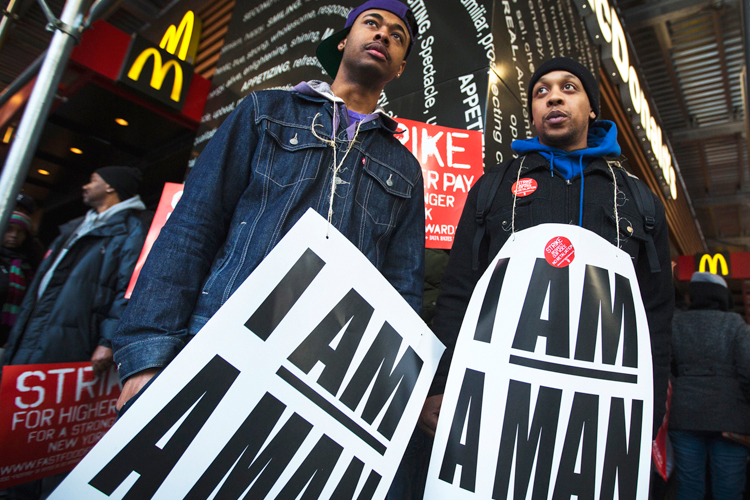Earlier this week Josh Eidelson reported for Salon that St. Louis was hit with a surprise fast food worker strike, when non-union workers from restaurants including MacDonald’s and Wendy’s walked off the job Wednesday. He now reports that Detroit has become the fourth city in five weeks to see such a strike. Organizers expect over 100 workers from at least 60 stores, including McDonald’s, Wendy’s, Subway, Little Caesar’s, and Popeye’s to walk out at 6 a.m.. Eidelson, who has closely followed the wave of strikes since they began in New York, noted their significance despite their small size in a post for the Nation:
[T]he fate of the fast food strike wave carries far-reaching implications: Fast food jobs are a growing portion of our economy, and fast food-like conditions are proliferating in other sectors as well. Organizers say the fast food industry now employs twice as many Detroit-area workers as the city’s iconic auto industry. These strikes also come at a moment of existential crisis for the labor movement, a sobering reality that was brought into sharp relief in December when Michigan, arguably the birthplace of modern US private sector unionism, became the country’s latest “Right to Work” state. Along with a shared significant supporter – SEIU – the campaigns in New York, Chicago, St. Louis, and Detroit have apparent strategies in common. Rather than waiting until they’ve built support from a majority of a store’s or company’s workers, they stage actions by a minority of the workforce designed to inspire their co-workers.


